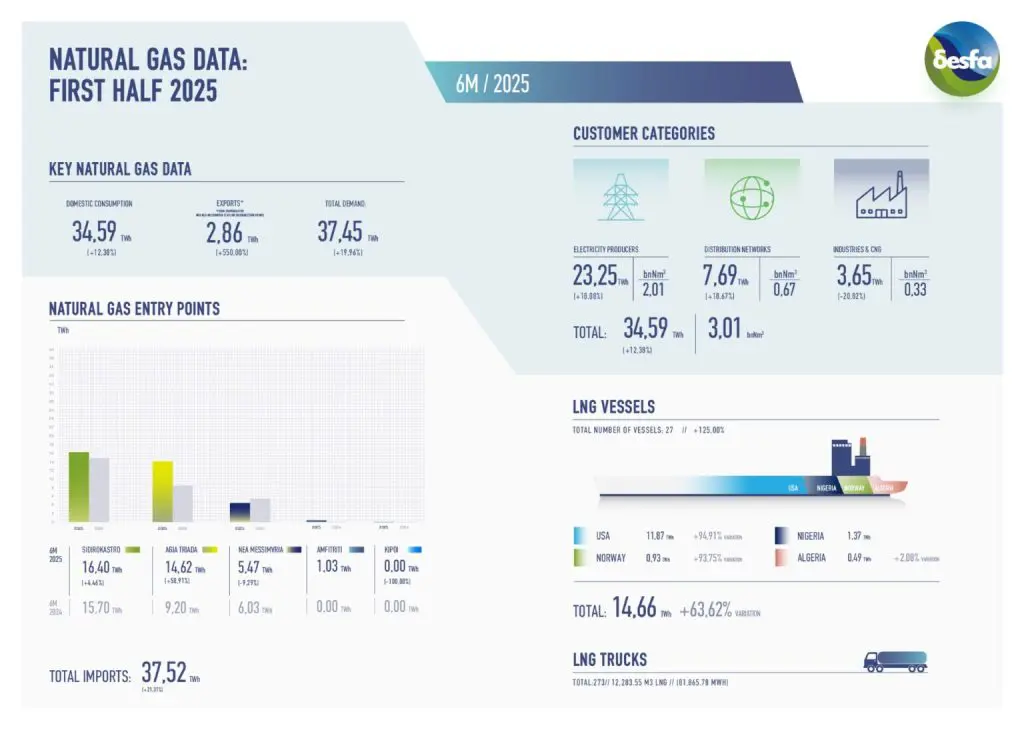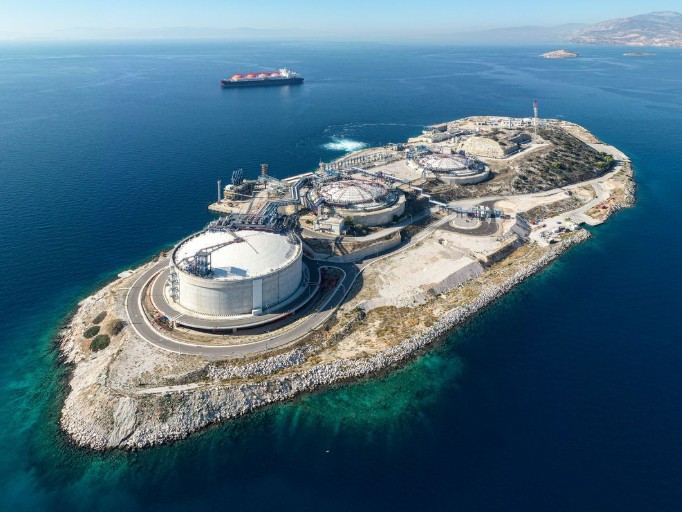This story requires a subscription
This includes a single user license.
The Greek gas grid and Revithoussa LNG terminal operator stated that LNG shipments during the six-month period totaled 14.66 terawatt-hours, equivalent to 27 tankers.
This marks a 63.6 percent rise compared to 6.93 TWh in the first half of last year.
However, LNG imports were lower compared to 17.63 TWh, or 26 tankers, in the same period in 2023.
The LNG shipments in the first quarter of this year totaled 10.65 TWh, or 20 tankers.
This means that second-quarter LNG imports reached 4.01 TWh, or 7 tankers.
Besides LNG imports, DESFA said its Revithoussa LNG truck loading service continued to grow significantly, with 273 LNG trucks loaded in the first half of the year compared to 104 trucks in the same period of 2024, corresponding to 81.72 GWh — an increase of approximately 166 percent.
“This sustained growth in truck loading activity confirms the service’s increasing recognition as an effective and flexible solution for meeting the energy needs of remote distribution networks and industrial consumers, both in Greece and the broader region,” the Greek firm, owned by a consortium led by Snam, said.
US remains top LNG supplier to Greece
The US remained the largest LNG supplier to Greece in the first six months of this year.
US LNG volumes reached 11.87 TWh in the first half of this year, compared to 6.09 TWh in the same period last year, DESFA said.
Nigeria followed with 1.37 TWh, Norway with 0.93 TWh, and Algeria with 0.49 TWh.

Total gas imports to Greece totaled 37.52 TWh in the first quarter, reflecting a 21.3 percent increase compared to the same period in 2024.
In the first half of 2025, Sidirokastro and Revithoussa remained the main natural gas entry points into Greece.
Sidirokastro recorded imports of 16.40 TWh, marking a 4.46 percent increase compared to 2024, while the Revithoussa LNG terminal (Agia Triada entry point) reinforced its pivotal role with a total of 14.62 TWh, representing a 58.91 percent year-on-year increase — despite being offline from April 22 to May 11 due to scheduled upgrade works, DESFA said.
Moreover, 5.47 TWh were imported via Nea Mesimvria (the interconnection point with the TAP pipeline), marking a 9.29 percent decrease compared to the same period last year.
Through Amfitriti (the Alexandroupolis FSRU), a total of 1.03 TWh of LNG was imported until January 21 when regasification services at the station became temporarily unavailable, DESFA said.
In January, UK-based energy giant BP supplied an LNG cargo to Bulgaria’s Bulgargaz via the Alexandroupolis FSRU, in which DESFA is a shareholder as well.
However, Gastrade’s Alexandroupolis FSRU has remained unavailable for regasification services since then due to a technical issue.
Gastrade plans to resume Alexandroupolis FSRU operations on August 15.
Exports surge
According to DESFA’s data, total natural gas demand (including domestic consumption and exports) reached 37.45 TWh, marking an increase of 19.96 percent compared to 31.22 TWh in the first half of 2024.
Notably, natural gas exports through the Sidirokastro and Nea Mesimvria interconnection points rose significantly to 2.86 TWh, up from 0.44 TWh the previous year, DESFA said.
This represents an increase of over 550 percent.

